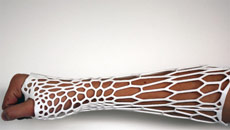Not only the spiderman, even you may share certain genomic similarities with spiders, a study that for the first time sequenced the genome of a spider has revealed.
The fact that the eight-legged creepy spider in some ways resembles humans is one of the surprising conclusions of the researchers who succeeded in sequencing its genome.
“In brief, we have acquired a tool for everyone interested in spiders,” said Jesper Bechsgaard of Aarhus University, Denmark.
The researchers worked with two types of spiders - a small velvet spider and a tarantula.
They succeeded in sequencing the velvet spider’s genome, while there are still some unsolved gaps in the genetic map of the tarantula.
“We found a number of genes, about 200-300, that have only been found in these two types of spiders and not in other organisms. They could be candidates for genes specific to spiders,” Bechsgaard said.
They also looked at the protein composition of two of the most interesting areas of the ‘crawly cousins’ - silk and venom production.
Many researchers all over the world would like greater insight into areas such as how it makes its silk of thin, but incredibly strong thread, and how its venom works.
“People can select an aspect or feature of the spider they are interested in, and then utilise the ‘genetic map’ we published and which we ourselves have used to study silk and venom,” the researchers said.
The study appeared in the journal Nature Communications.





